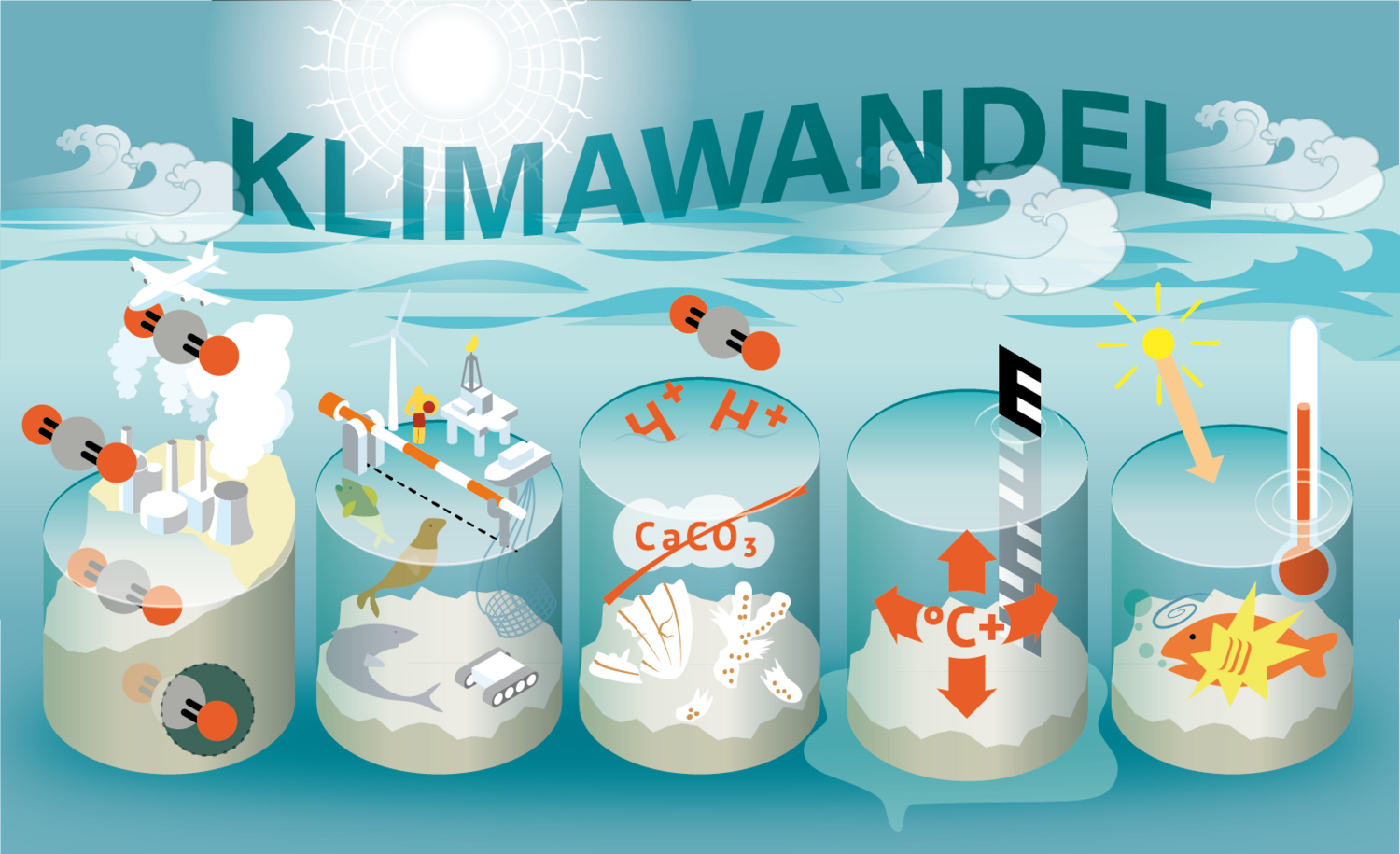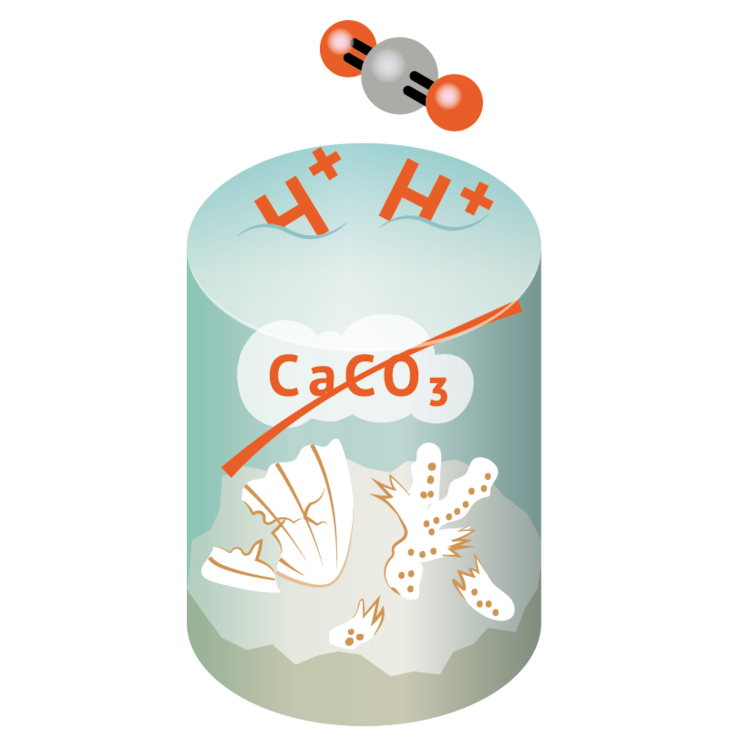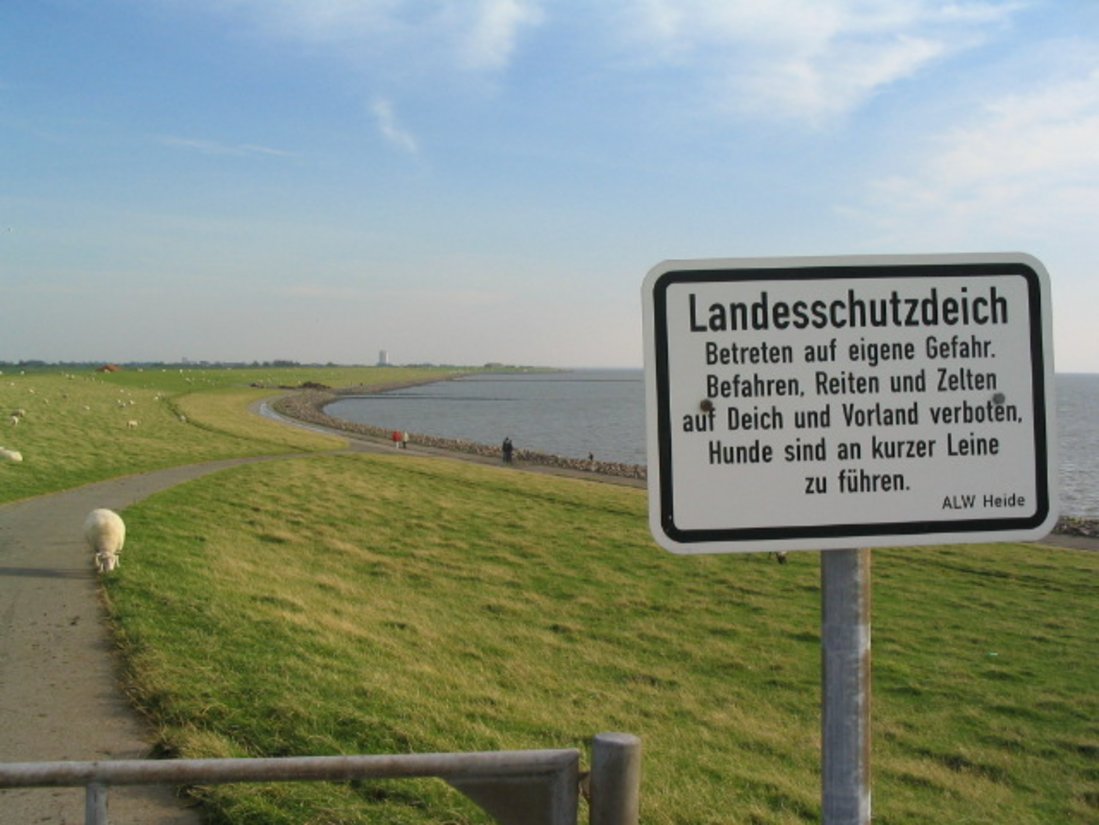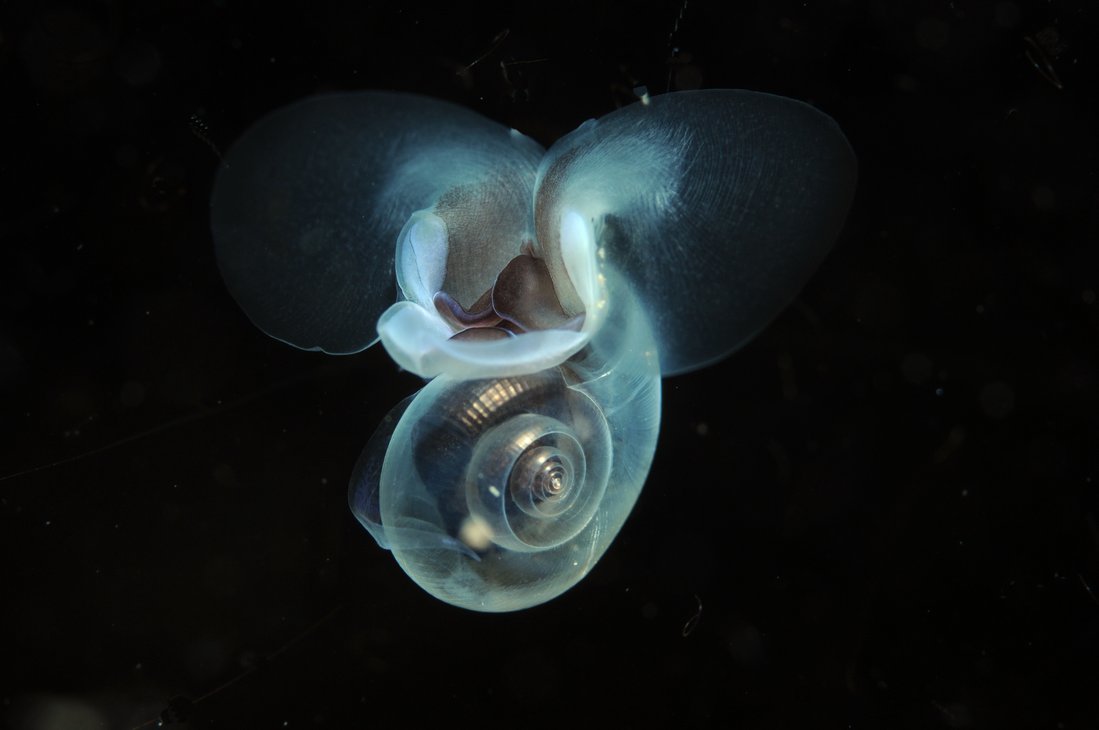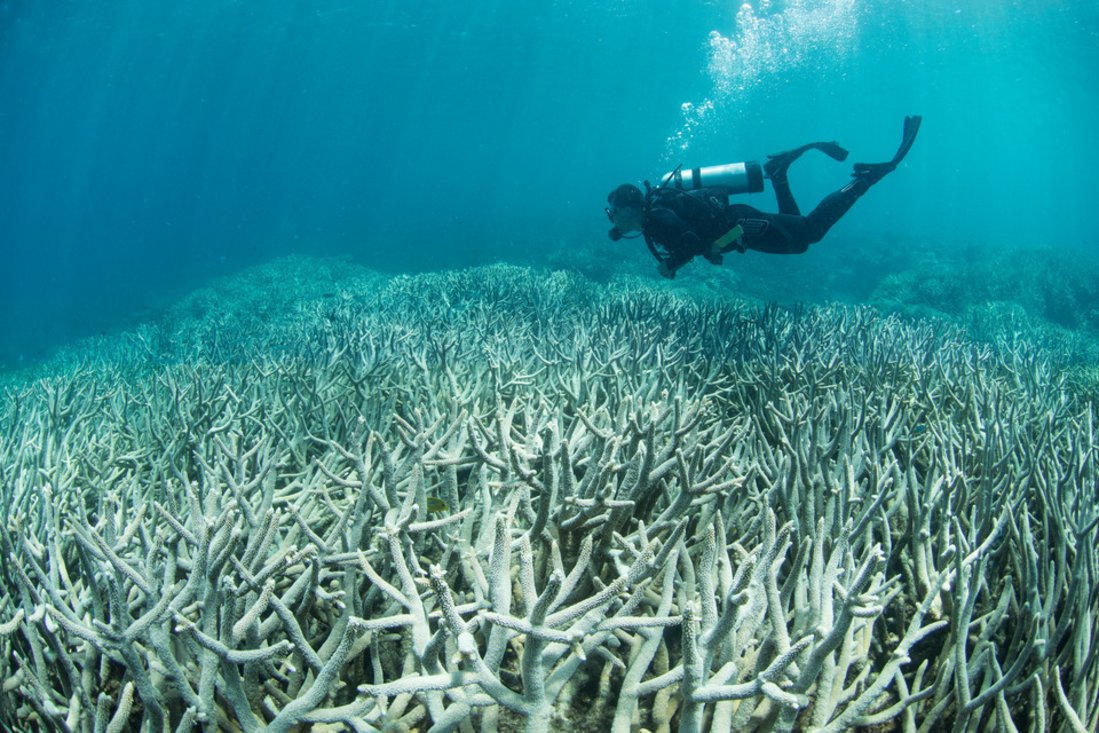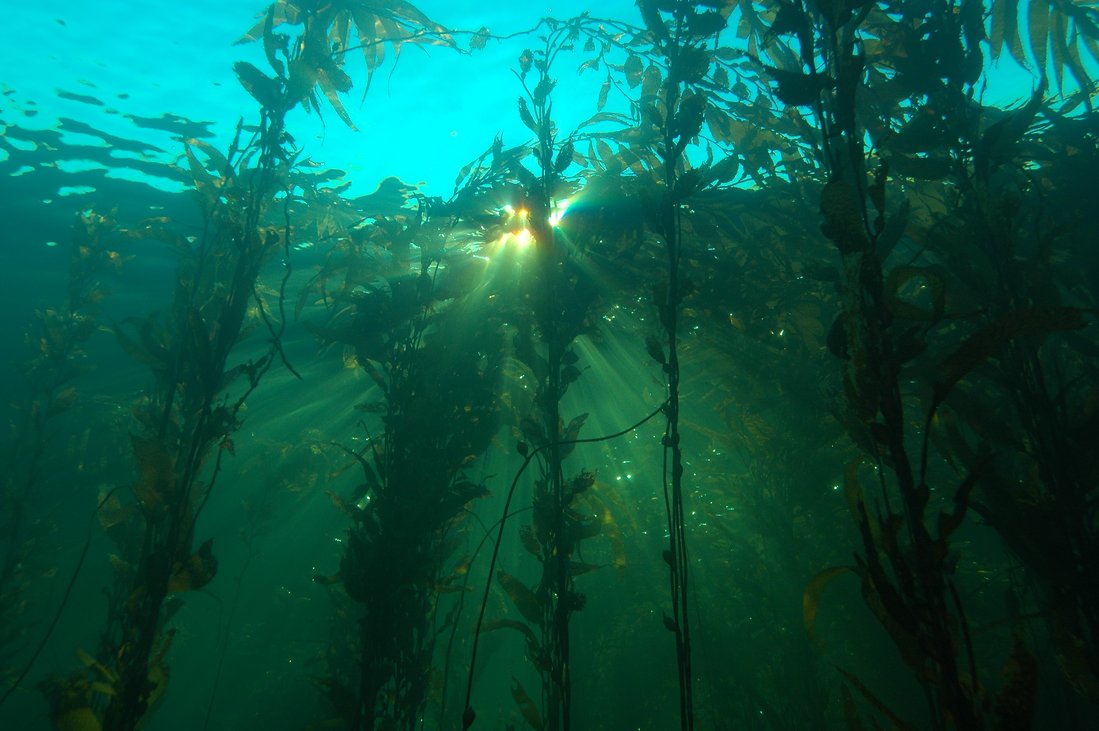The oceans regulate our climate. They absorb heat in the tropics and distribute it across the entire planet via global ocean currents. Without the Gulf Stream, it would be significantly cooler in Central Europe. As the oceans play such a major role in our climate, they are also important factors in a changing climate.
First of all, they are powerful storage areas. As described, they can absorb a lot of heat. They also absorb huge amounts of carbon dioxide (CO2). Without this climate service, the concentration of greenhouse gases in the atmosphere would have risen even more and the world would have warmed even more than we have observed so far. Therefore, the oceans mitigate the effects of global warming and are also known as climate buffers.
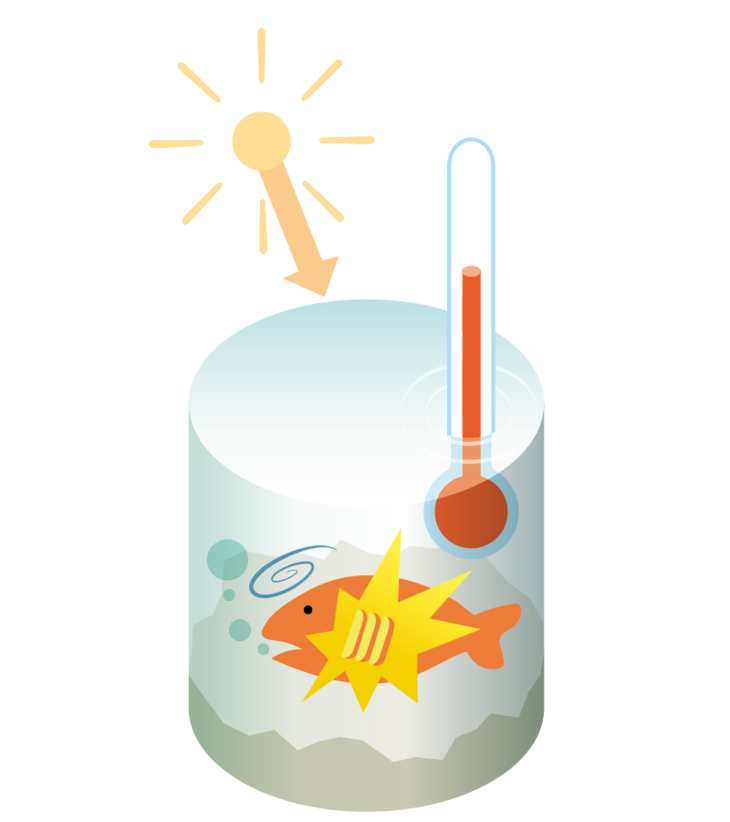
The oceans are absorbing additional heat due to higher temperatures on our planet. This has wide-ranging consequences such as sea level rise because warm water expands. As there is more heat energy in the water, the oceans can also release more energy again. This means that warmer oceans can cause stronger storms and more frequent heavy rainfall.
Another problem is that oxygen dissolves more poorly in warmer water and the oxygen content decreases as a result. One of the most important component for life in the sea is becoming less: the oceans are running out of air.
In addition, the stratification of the water masses increases as the temperature of the water rises, especially at the surface. However, water masses with different temperatures do not mix together as much. As a result, less oxygen-rich water reaches medium and great depths from the sea surface.
The warming of the atmosphere results in an increase of the water temperature. The climate service - i.e. the absorption of additional carbon dioxide released by humans into the oceans - also has another major consequence.
The additional CO2 leads to the acidification of the sea. This means, more carbonic acid is formed in the water. In the long term, this lowers the pH value in the sea, which primarily affects corals, mussels and other calcifying marine organisms. Since the beginning of industrialization, the acidity level has risen by 26 percent. Even the deep sea is now affected.
If the water is too warm, too acidic and possibly also low in oxygen levels, more highly developed animals in particular no longer have a chance of survival. Predators such as sharks, rays and tuna are the first to migrate, with all others following with a time lag, assuming the individual organisms are able to move (not sessile).
To summarise, the change in climate services of the oceans is expensive and the greatest costs will be primarily carried by our children and young people as well as other future generations. However, it doesn't have to stay this way. We can do something. If we adapt our economy and our way of life to the self-sustaining logic of our planet's nature, everyone can benefit: people, animals and plants, but how can we do this?
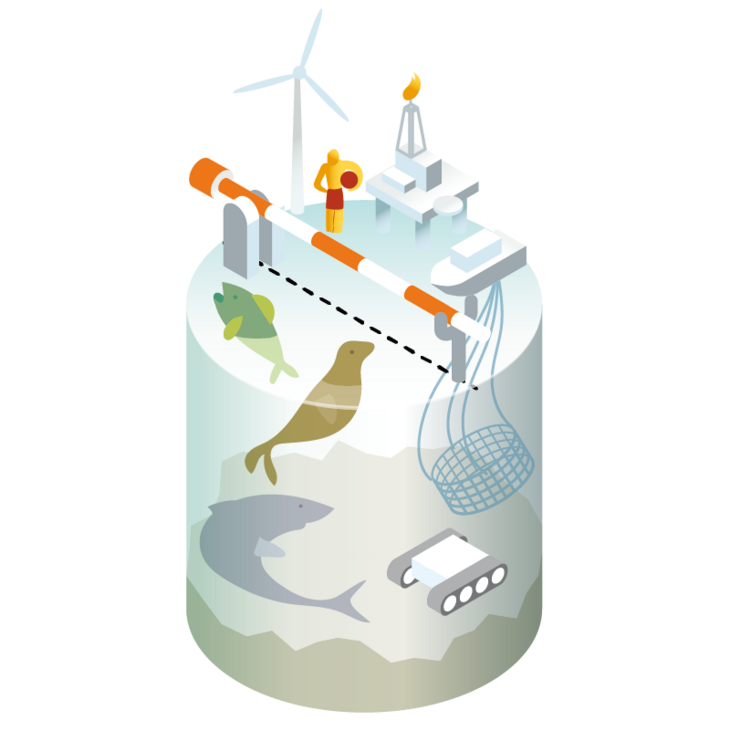
Sustainable management of our oceans is possible. The term sustainable means that the “services” of the oceans are used in a way that the natural balance is not permanently destructed. People have always lived with the oceans and from its ressources and they will continue to do so in the future. In our own interest, the ruthless exploitation must be stopped.
Many initiatives have been launched. For example, numerous protected areas have been established in seas and oceans. Fishing quotas are in place to ensure that stocks are not overfished. None of these activities are enough and or sufficiently monitored. However, there is a growing awareness of the needs of marine nature and that it is crucial to preserve it in our own interests.



